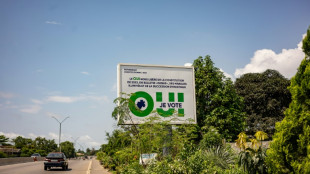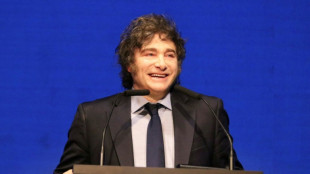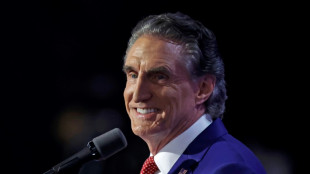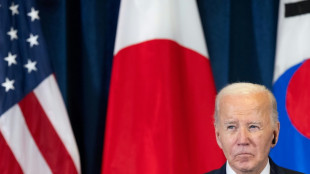More grain leaves Ukraine ahead of high-stakes summit on Russian invasion
Three ships loaded with grain set sail from Ukraine on Friday under a landmark deal to free up shipments brokered by Turkey, as its leader prepared to meet his Russian counterpart for talks on Moscow's invasion of its neighbour.
Months of efforts by President Recep Tayyip Erdogan saw Moscow and Kyiv agree in Istanbul last month to resume the shipments from Ukrainian ports in a bid to relieve a global food crisis caused by the assault launched in February.
The government in Kyiv said on social media that two ships carrying Ukrainian maize -- the Maltese-flagged Rojen and the Turkish Polarnet -- had set off from Chornomorsk while the Panama-flagged Navistar departed from Odessa.
As the vessels left, Erdogan was preparing with most of his top ministers for his second talks with President Vladimir Putin in 17 days and a working lunch in the Russian resort city of Sochi.
"Russia's war on Ukraine has restored Turkey's self-image as a key geopolitical player and given Erdogan more visibility than at any time in the last few years," European Council on Foreign Relations fellow Asli Aydintasbas wrote in a report last week.
The first ship from Ukraine crossed Istanbul on Wednesday, while the three latest deliveries were destined for Turkey and markets in Ireland and Britain.
Erdogan wants to translate the success into truce talks in Istanbul between Putin and Ukrainian President Volodymyr Zelensky.
"We discussed if the grain agreement could be an occasion for a sustainable ceasefire," Turkish Foreign Minister Mevlut Cavusoglu said after talks with Russian counterpart Sergei Lavrov in Asia this week.
- Victim-blaming -
The rare diplomatic breakthrough has been overshadowed in Ukraine, however, by a mushrooming controversy over accusations that the war-torn country is violating international law and endangering civilians in its defence against Russia's invasion.
Amnesty International released a report Thursday listing incidents in 19 cities and towns where Ukrainian forces appeared to have put civilians in harm's way by establishing bases in residential areas.
Zelensky equated the accusations to victim-blaming in an evening address in which he said the rights group had sought to offer "amnesty (to) the terrorist state and shift the responsibility from the aggressor to the victim".
"There is no condition, even hypothetically, under which any Russian strike on Ukraine becomes justified. Aggression against our state is unprovoked, invasive and terrorist," he added.
"If someone makes a report in which the victim and the aggressor are supposedly equal in some way... then this cannot be tolerated."
After a four-month investigation, Amnesty said it had found that the Ukrainian military had established bases in schools and hospitals, and launched attacks from populated areas, asserting that the tactics violated international humanitarian law.
The group noted, however, that the tactics "in no way justify Russia's indiscriminate attacks", which have battered civilian populations.
On Friday, the Ukrainian presidency reported Russian bombardments overnight targeting the southern city of Mykolaiv with widely-banned cluster bombs and heavy artillery -- prompting regional governor Vitaliy Kim to order a curfew from 11:00 pm (2000 GMT) on Friday, until 5:00 am (0200 GMT) on Monday.
"I ask everyone to understand, plan the weekend and make purchases for these two days," the governor said on social media platform Telegram.
"Honest people have nothing to worry about -- just keep your documents with you."
- Counter-offensive -
Several towns and villages in the east, including Nikopol and Kryvyi Rig, were also hit by shelling that damaged houses and a gas station.
Several missiles struck the central city of Zaporizhzhia overnight, where Moscow has been accused of storing heavy weapons at Europe's largest nuclear power plant in occupied Ukrainian territory.
There was also heavy bombardment of Ukraine's second city Kharkiv, in the northeast, where housing, shops, a market and an educational institution were damaged.
Ukrainian forces are conducting a counter-offensive in the country's south, where they claim to have retaken more than 50 villages previously controlled by Moscow.
They also claimed to have liberated two villages in the eastern Donetsk region on Thursday and one near Kharkiv on Friday.
The attacks have not affected the grain shipment deal, which provides for the establishment of secure corridors in the Black Sea to allow merchant ships to export between 20 and 25 million tonnes of Ukrainian grain held up in ports.
A similar agreement signed at the same time allows Russia to export its agricultural products and fertiliser despite Western sanctions.
I.Frank--MP




